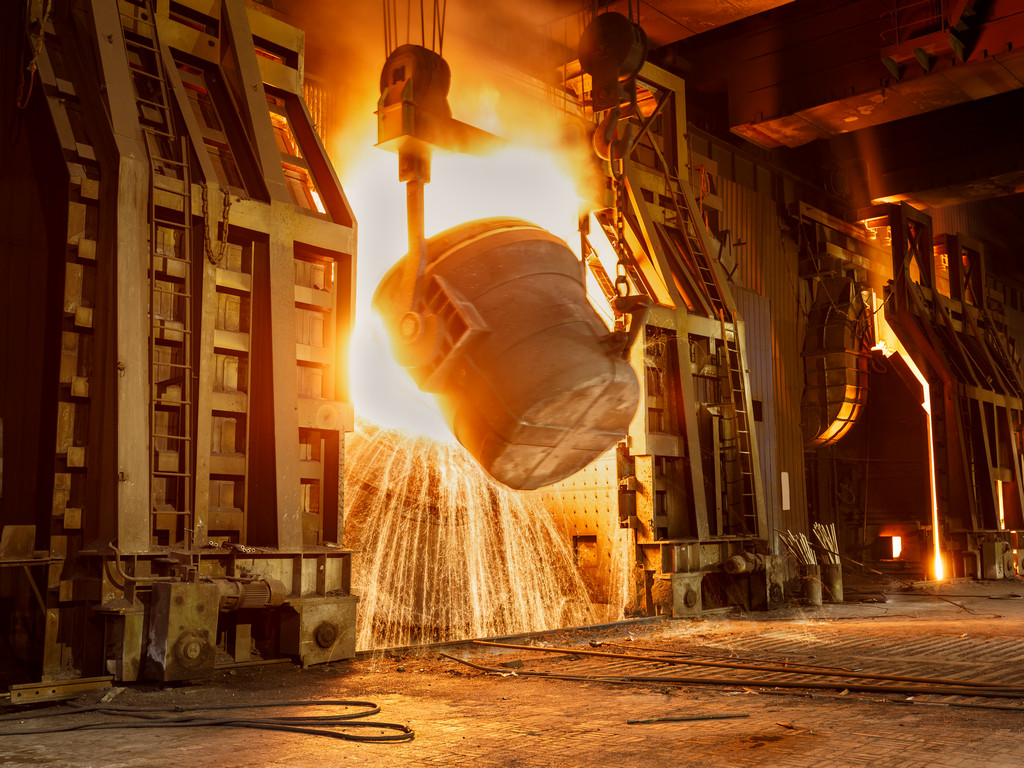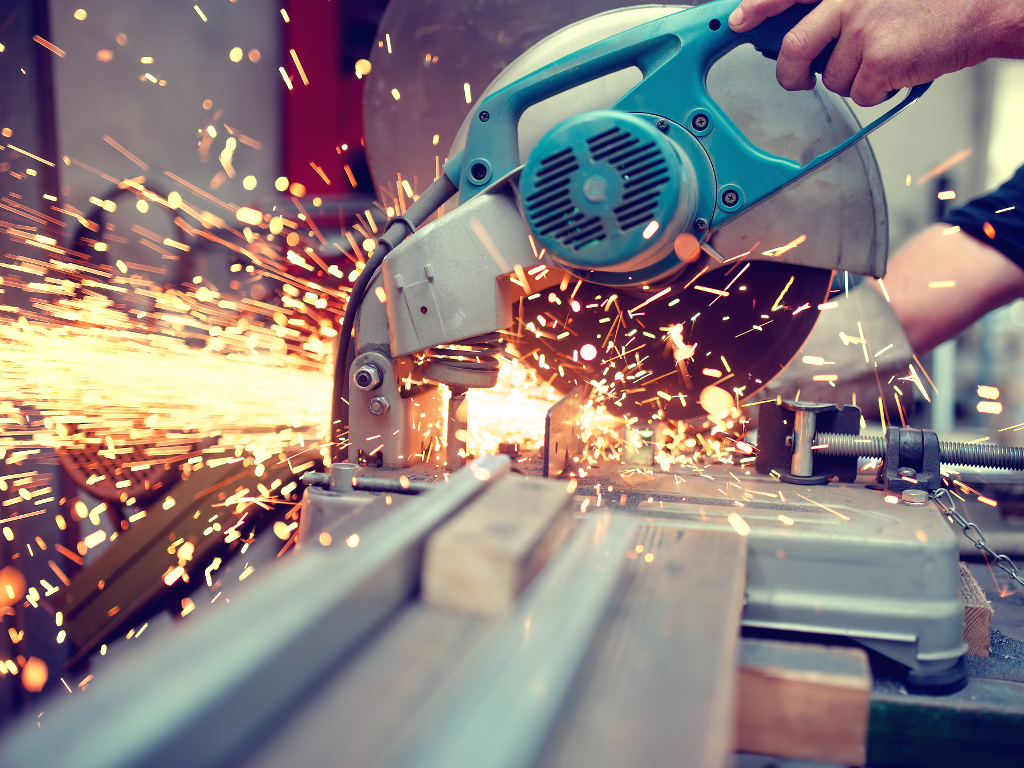Processors and exporters expect the state to solve the problem of metal waste treatment – EU requires Serbia to remove export restrictions
Source: eKapija
 Monday, 21.05.2018.
Monday, 21.05.2018.
 15:39
15:39
 Monday, 21.05.2018.
Monday, 21.05.2018.
 15:39
15:39
(Photo: Zhao jian kang/shutterstock)

In this request, the Ministry of Foreign Affairs of Greece said that the law violates the rules of free trade, as well as the Stabilization and Association Agreement.
It is this detail – the warning about non-compliance with the SAA that might prove to be the source of much more serious problems, having an impact far beyond the field of metal waste processing.
To clarify, not too long after the Greek ministry sent its request, the European Commission contacted Serbian authorities concerning the same problem, but it didn't stop there. At the same time, information appeared that the EC planned to start implementing specific customs duties on certain products from Serbia, primarily fruit and vegetables, as the countermeasure against the “delays” in the issuing of permits for the export of metal waste.
So far, this hasn't happened.
In the meantime, the Ministry of Environmental Protection of Serbia said that they were protecting Serbia's interests and that the SAA had not been violated. The state secretary at the ministry, Branislav Blazic, also said at the time that Serbia had iron processing operators and that the state was obliged to comply with the Law on Environmental Protection and entrust the nearest operator with the treatment of waste.
The ministry also decided at the time to approve several export permits for companies which deal in collection, processing and sale of metal waste in Serbia.
This, however, doesn't seem to have solved the problem.
In the recently published 2018 Annual Report on Serbia, the EC said that, in the coming year, Serbia should “urgently remove the recently imposed export restrictions on non-hazardous waste, which are not justified under the Stabilization and Association Agreement and which point to weaknesses in administrative capacity to implement trade policy”.
The eKapija portal has attempted to get a response from representatives of the Ministry of Environmental Protection regarding these recommendations of the EU and its members, as well as about further steps the state plans to make regarding the issue. However, even after more than a month of waiting and several promises, we didn't get any answers.
Waste is (not) merchandise?
Commenting on the reactions from Europe, Sremska Mitrovic-based rolling mill Metalfer says for our portal that “it comes down to strong lobbying of certain foreign companies whose main interest is to export steel waste from Serbia to their home countries, in which those companies have their own processing capacities”.
(Photo: bogdanhoda/shutterstock.com)

As they add, the law in Serbia “clearly says that only the waste for which there are no processing capacities in the Republic of Serbia is exported”.
According to their information, annual processing capacities for steel waste in Serbia amount to nearly 800,000 tons, whereas around 500,000 tons of waste are generated each year in Serbia. This means, they explain, that “there's a considerable discrepancy with the installed processing capacities”.
On the other hand, the director of one of the big exporters, Inos Balkan, Iosif Vangelatos, says that Serbia needs to fully comply with the SAA and explains that “Serbian authorities have adopted new regulations, implementing non-tariff barriers on the export of non-hazardous waste”.
He adds that the regulations have been amended three times and that the possible conclusion is that “all this is being done in order to forbid the export of non-hazardous waste from Serbia”.
– Non-hazardous waste, such as metal, paper and plastic waste, is a secondary raw material and should be treated as any other type of goods, that is, without any kind of regulatory framework.
When asked what reason Serbia might have for not issuing exporting permits, Vangelatos answers that “the only true reason for such measures is protectionism and favoring of local industry”.
He sees the recent measure by the Ministry of Environmental Protection of authorizing several exporting permits as “a clear attempt of avoiding pressure by the European Commission, without really solving the issue”.
Vangelatos also reminds that the principles of free trade benefit the Serbian economy and that “no sector has ever become stronger and more competitive through measures of protectionism anywhere”.
– Eventually, companies which operate with secondary raw materials in Serbia will suffer damage due to these measures and lose access to the EU market.
A ban on export might cost Inos Balkan dearly. Vangelatos explains that the company exported 50,000 tons in 2016 and 70,000 tons in 2017, whereas the total value of the export amounted to EUR 23 million.
– With each month of the ban on export being in effect, we miss sales worth EUR 1.9 million – he points out and emphasizes that they “must continue exporting so that we could pay salaries and taxes, instead of laying off employees and ceasing operations in Serbia”.
Despite taking the opposite position on the issue, Metalfer is also experiencing similar financial troubles due to the unresolved issue of metal waste treatment. The company says for eKapija that they are currently working at below 50% of their processing capacities.
– If we managed to fill our processing capacities, we would employ at least another 100 workers and realize an increase in annual turnover of more than EUR 60 million – they say and add that “unlike exporters, processors of waste iron in Serbia regularly report their income and pay income taxes in the Republic of Serbia, while employing nearly six thousand workers who are paid regular salaries, and tax and contribution payments are also regular and considerable”.
They remind that waste processors contribute considerably to the GDP of the Republic of Serbia and that “they could increase their contribution even further if the Law on Waste Management was complied with and if the amounts that are exported would be processed in the existing capacities in Serbia instead”.
The amount of iron exported from Serbia annually in the past years is between 300,000 and 400,000 tons, whereas the difference between the average price of waste and the average price of finished steel products is around EUR 300 per ton. This shows that more than EUR 100 million was drained from Serbia each year due to the difference in prices.
M.V.
Companies:
 Metalfer d.o.o. Sremska Mitrovica
Metalfer d.o.o. Sremska Mitrovica
 Inos-Balkan d.o.o. Valjevo
Inos-Balkan d.o.o. Valjevo
 Ministarstvo zaštite životne sredine Republike Srbije
Ministarstvo zaštite životne sredine Republike Srbije
 EUROPEAN COMMISSION Bruxelles
EUROPEAN COMMISSION Bruxelles
 Vlada Republike Srbije
Vlada Republike Srbije
 Vlada Grčke
Vlada Grčke
Tags:
European Commission
Government of Greece
Ministry of Foreign Affairs of Greece
metal waste processing
export of metal waste
metal waste treatment
metal waste
export of non hazardous waste
non hazardous waste
free trade
Stabilization and Association Agreement
SAA
permit for export of metal waste
Branislav Blazic
iron processing
iron
waste iron
Law on Environmental Protection
metal waste collection
export of steel waste
steel waste
steel
Law on Waste Management
waste management
waste
Iosif Vangelatos
secondary raw materials
production of steel
production of iron
Comments
Your comment
Most Important News
Full information is available only to commercial users-subscribers and it is necessary to log in.
Follow the news, tenders, grants, legal regulations and reports on our portal.
Registracija na eKapiji vam omogućava pristup potpunim informacijama i dnevnom biltenu
Naš dnevni ekonomski bilten će stizati na vašu mejl adresu krajem svakog radnog dana. Bilteni su personalizovani prema interesovanjima svakog korisnika zasebno,
uz konsultacije sa našim ekspertima.


 Izdanje Srbija
Izdanje Srbija Serbische Ausgabe
Serbische Ausgabe Izdanje BiH
Izdanje BiH Izdanje Crna Gora
Izdanje Crna Gora


 News
News






